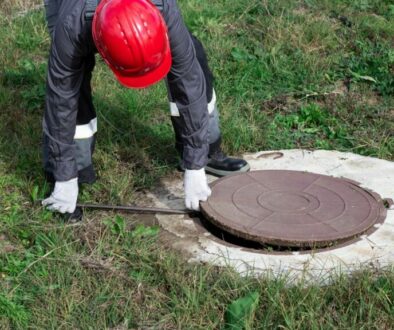How To Become An Exterminator?
If you are interested in pest control and enjoy working with your hands, then becoming an exterminator may be the right career choice for you. In this article, we’ll outline the steps you need to take to become an exterminator, the skills required for the job, and the benefits of working in this field.
Steps To Becoming An Exterminator
Before starting in your career as an exterminator, you need to complete certain requirements.
Exterminators are professionals that specialize in the removal and control of pests such as insects, rodents, and wildlife. They are responsible for inspecting properties, identifying infestations, and developing a plan to eliminate the problem. If you are interested in becoming an exterminator, here are the steps to follow:
- Education and Training
Most exterminators have at least a high school diploma or equivalent. However, some employers require a degree in biology or a related field. Having a degree in a related field can provide you with a deeper understanding of the pests you will be dealing with and the methods used to control them.
It’s essential to research the educational requirements for the job you’d like to pursue. Some states require specific courses and on-the-job training, while others offer apprenticeships. The National Pest Management Association (NPMA) offers a variety of training programs and courses that can help you gain the knowledge and skills needed to become an exterminator. - Obtain a License or Certification
To practice as an exterminator, you will need to obtain a license or certification. The requirements vary by state, but most require passing a state exam and completing on-the-job training.
It’s essential to review the licensing and certification requirements in your state before starting your training. Failure to obtain proper documentation can result in a delay in starting your career or fines. The NPMA offers certification programs that can help you prepare for the exam and meet the requirements in your state. - Look for Job Opportunities
Once you have obtained your license or certification, you can start looking for job opportunities. Exterminators can work for pest control companies, government agencies, or start their own business.
Being an exterminator can be a challenging and rewarding career. You will have the opportunity to help people solve pest problems and make their homes and businesses safer and more comfortable.
Skills Needed For Becoming An Exterminator
Beyond the necessary education and training, exterminators need several key skills to excel in their roles.
Attention to detail
Pest control requires attention to detail. Detecting small signs of pest infestations in buildings or on properties is crucial. Exterminators must be meticulous in cleaning up and eliminating the source of the pest problem. They must also be aware of potential entry points that pests can use to gain access to a building or property. This requires a keen eye and the ability to spot even the tiniest of clues that could indicate a pest infestation.
For example, an exterminator might notice a small hole in a wall that could be a potential entry point for mice. They would then seal up the hole to prevent mice from entering the building.
Physical stamina
The role of an exterminator involves physical work, such as crawling, stooping, or climbing to reach the infestation site. Exterminators need the stamina to perform these tasks while carrying equipment. They must also be able to withstand the physical demands of working in various weather conditions, such as extreme heat or cold.
For example, an exterminator might need to crawl through a tight space to reach a wasp nest. They would need the physical stamina to perform this task while also carrying the necessary equipment to eliminate the nest.
Critical thinking
Each pest problem can be challenging and unique. An exterminator must critically analyze a situation to determine the best course of action for eliminating pests while minimizing risks to health, the environment, and the property. They must also be able to communicate their plan of action clearly to their clients.
For example, an exterminator might encounter a bed bug infestation in a hotel room. They would need to critically analyze the situation to determine the best method of elimination while also minimizing the risk of spreading the infestation to other rooms. They would then need to communicate their plan of action to the hotel staff and guests.
Exterminators need a combination of technical knowledge, physical stamina, and critical thinking skills to excel in their roles. They play an important role in protecting public health and safety by eliminating pests and preventing their spread.
What is An Exterminator?
An exterminator is a highly trained professional who specializes in the identification, control, and elimination of various pests that can invade homes, businesses, and other structures. These pests can include insects, rodents, and even wildlife such as raccoons and squirrels.
Exterminators play an important role in maintaining the health and safety of people and their surroundings. Pests can carry diseases and cause damage to property, so it is essential to address any infestations promptly and effectively.
Exterminators use a variety of methods to control and eliminate pests, depending on the type of pest and the severity of the infestation. Some of the most common methods include:
- Chemicals and pesticides – Exterminators may use chemicals and pesticides to kill pests and prevent them from returning. These products are carefully chosen and applied to ensure the safety of people and pets.
- Non-toxic alternatives – For those who prefer a more eco-friendly approach, exterminators may use non-toxic alternatives such as traps, baits, and essential oils to control pests.
- Education – Exterminators also educate property owners on how to prevent pests from re-infesting the area. This may include sealing cracks and crevices, eliminating food sources, and maintaining a clean and clutter-free environment.
Exterminators must be knowledgeable about the habits and behaviors of various pests, as well as the latest techniques and products for controlling them. They must also be skilled in communication and customer service, as they work closely with property owners to address their pest problems.
Overall, exterminators play a critical role in protecting people and their property from the harmful effects of pests. If you are experiencing a pest problem, it is essential to contact a professional exterminator to address the issue promptly and effectively.
The Benefits of Working as An Exterminator
The demand for exterminators tends to be steady since pest control is always necessary. The job offers a variety of benefits to its employees, including:
Job Growth
The Bureau of Labor Statistics (BLS) expects that employment in pest control will grow by 7% until 2026. This growth rate is faster than average compared to other industries, leading to more opportunities for employment. Additionally, the increasing awareness of the health hazards posed by pests has led to a surge in demand for pest control services, leading to a higher demand for exterminators. With the growing concern for the environment, many pest control companies are also shifting towards eco-friendly methods of pest control, which requires more skilled exterminators.
Job Satisfaction
Exterminators experience a sense of accomplishment in their work since they help protect people and property from disease and damage. Moreover, exterminators play a crucial role in maintaining the public health by controlling the spread of pests that cause diseases such as dengue fever, malaria, and Lyme disease. They also help prevent damage to property by termites and rodents, which can cause extensive damage if left unchecked. The job of an exterminator is not only rewarding but also essential for the well-being of the community.
Flexible Schedule
Some exterminators work part-time, which gives them flexibility to pursue other interests or family activities. Seasonal work also sometimes allows for more substantial periods of time off. This flexibility is especially beneficial for those who are studying or have other commitments. Moreover, many pest control companies offer on-the-job training and flexible work schedules to accommodate the needs of their employees.
Competitive Pay
Exterminators earn a competitive salary and can increase their earning potential with experience. According to the BLS, the median annual wage for pest control workers is $37,330. However, experienced exterminators can earn significantly more, especially if they specialize in a particular area of pest control such as termite or bed bug extermination. Moreover, many pest control companies offer bonuses and incentives to their employees, which can significantly increase their earning potential.
Becoming an exterminator requires hard work, dedication, and a continuous learning mindset. The industry offers steady job opportunities with competitive pay and benefits while providing a sense of accomplishment in protecting people from pests. With the right training and skills, you can pursue a fulfilling career in pest control and make a positive impact in your community.




